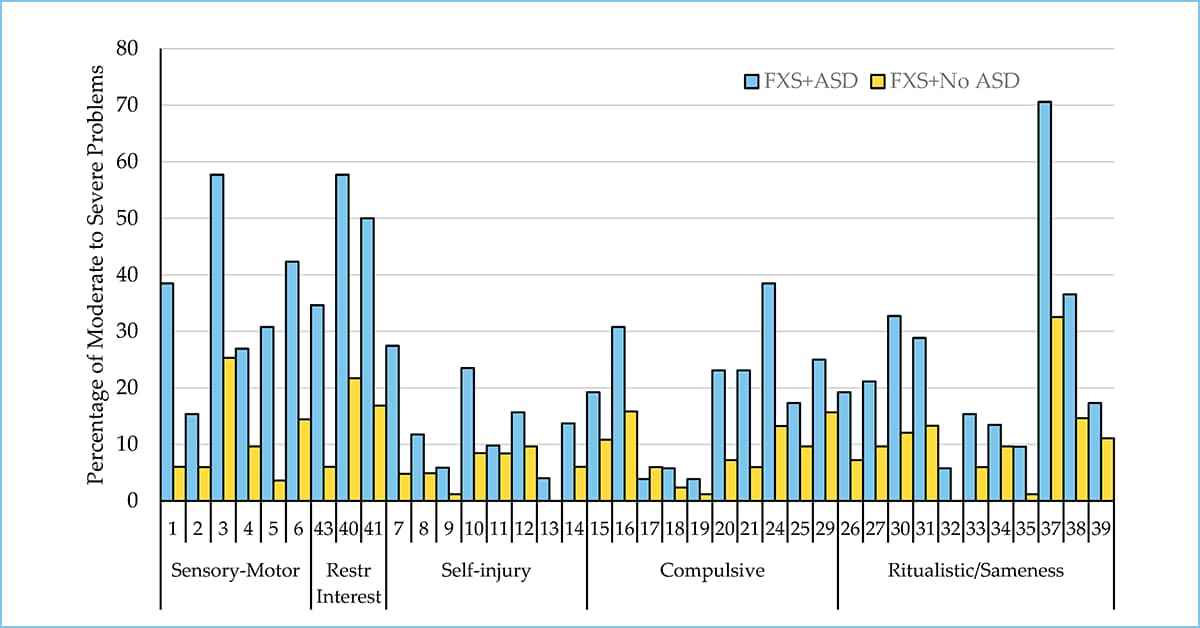Delineating Repetitive Behavior Profiles across the Lifespan in Fragile X Syndrome
Abstract
Restricted repetitive behaviors (RRBs) are a core area of impairment in autism spectrum disorder (ASD), but also affect several other neurodevelopmental disorders including fragile X syndrome (FXS). Current literature has begun to describe the RRB profile in FXS up through adolescence; however, little is known about the subtypes of RRBs in adolescents and adults. Further, literature on the RRB profile of females with FXS is limited.
The present study examines the RRB profile across subtypes and specific items in both males and females with FXS while assessing for differences based on age, ASD diagnosis and the impact of IQ. Participants included 154 individuals with FXS (ages 2 to 50 years old). Results revealed a peak in RRB severity in FXS between 7–12 years for the majority of RRB subscales with the exception of Sensory-Motor behaviors peaking between 2 and 12 years before declining.
Distinct RRB profiles in males and females with FXS emerged in addition to significant overlap among the item and subscale levels of RRBs across gender. Further, an added diagnosis of ASD significantly increased rates of RRBs across all subscale levels, but not necessarily across all items. Lastly, IQ did not solely account for the presence of RRBs in FXS, with Sensory-Motor behaviors being driven by comorbid ASD in males with FXS, and Restricted Interest behaviors being driven by comorbid ASD regardless of gender.
These findings build on the current understanding of RRBs in FXS based on gender and comorbid ASD and lay important groundwork for the development of targeted behavioral and pharmacological treatments.
Reisinger DL, Shaffer RC, Tartaglia N, Berry-Kravis E, Erickson CA. Delineating Repetitive Behavior Profiles across the Lifespan in Fragile X Syndrome. Brain Sciences. 2020; 10(4):239. https://doi.org/10.3390/brainsci10040239






